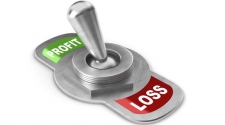Making good decisions is the foundation of success for every business owner, founder, CEO and manager. Whatever the specifics of the business, the niche you work in, and the products you sell, the most important thing for you to do is have the clear sight you need to make decisions that get you the best results for least waste of resources.
Today we’re looking at the science of decision making, to take the chance out of things, and give you a clear system to work with when you’re choosing how to invest your resources and take important steps for your business.
Data
The first thing you need for a rock solid decision making process is data, and as much of it as possible.
Work with external companies like market research agencies to look beyond what’s immediately available to you as a company. A brands tracker survey will tell you now the resources you’ve put into growing your brand have performed: what people think of you, and how you rate with the competition in your field. Rechecking this after campaigns and changes show you whether your decisions are creating the results you need or if you need to make some changes to what you’re doing.
You can also gather data internally: sales figures, the effectiveness of sales staff in finding clients, and frequency of calls and emails to your customer service team, as well as the number of refunds granted will all paint a picture of how your company is performing.
Prediction and Testing
The most valuable thing you can get out of all this data, is a prediction engine: you can use it to model the results of your decisions, with more data providing more and more accurate models of how things could pan out.
It takes time to get this right, and you need to be diligent about checking your predictions against reality to see how well they line up, as well as recognising the factors you can’t model, but the bottom line is, the more data you have, the easier it is to work out likely outcomes for your decisions, and the more confident you can be in those decisions. You’ll know how your customers react in hot weather, in the school holidays, when they have the most money to spend and when they’re economising. You can predict the best time to launch new products, when a sale will encourage a wary market, and make decisions that will drive your company to succeed well into the future.
















